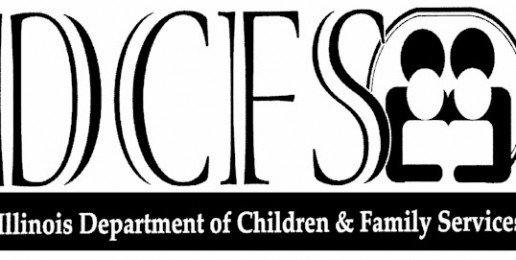
A little over a year ago, I wrote a column regarding the Illinois Department of Children and Family Services’ (DCFS) supposed confidential hotline. The DCFS hotline itself was a means by which Illinois citizens could report cases of child abuse and/or neglect. I had a personal experience regarding the use of the confidential hotline which was disturbing, to say the least.
I was aware of a family who lived near me in which children were exposed to an unhealthy environment according to anyone’s standards. During a visit to the home, three children (all under the age of ten) were found to be living in filthy conditions. There was animal excrement on the floors and carpeting which obviously exposed not only the children, but the entire family, to disease. My wife saw these children walking around in the home barefoot, negotiating their way around feces. Indeed, when the door to the home was opened, the stench was overwhelming, literally causing us to gag. While it was apparent that the situation was something this family considered normal, I felt a duty to report this matter to DCFS.
I used the DCFS “confidential” hotline in my attempt to notify the state agency regarding the unhealthy conditions these young children were subjected to. However, to my surprise, I could not make a “confidential” phone call to a hotline which, for many reasons, is designed to protect the confidentiality of those reporting the abuse and neglect of children. After inquiries, I was told by a DCFS spokesman that those using the hotline had to reveal their personal information or else DCFS would not document their calls.
After learning this, I contacted major news organizations in Illinois to expose DCFS’ new policy. It is obvious why a hotline devoted to protecting children must be confidential. Let me first relate a prior experience I had with the Illinois Dept. of Children and Family Services.
A number of years ago, when I resided in the Chicagoland area, I knew a drug-addicted couple who lived in my neighborhood. I had known this family for years– in fact, since grade school. The woman had recently given birth to a child who was born with a drug addiction as a result of her mother’s drug use during pregnancy. Though I wasn’t at their home often, it was obvious to me that this baby was in grave danger. After months of observing the family, the child–who was now six months of age– had not gained much weight, if any. In official terms, this is called “failure to thrive.” I thought the situation was so serious and life-threatening to this child, I called DCFS, revealing my name to the state agency. In response to my report to what was then truly a confidential hotline, a DCFS caseworker visited the home. During a visit to the home, the caseworker saw the condition of the infant, who was living in a dark and damp basement while possibly enduring sexual abuse as well.
During the DCFS caseworker’s visit, she made a trip to the bathroom, leaving her files in clear view of the family who I had reported on. They then looked through the caseworker’s notes and found my name listed as the individual who filed the complaint.
Obviously, the family was not happy with me. I received threats regarding the incident. This situation proved to me the importance of confidentiality in reporting instances of child abuse. (By the way, the baby was ultimately removed from the home due to “failure to thrive.” The child was adopted by a responsible family member, and, to my knowledge, this child is now leading a happy, healthy life, approaching her college years.)
I relate this story because I now know DCFS’ new policy–which does not allow for reports of child abuse in confidentiality–is putting many thousands of children in danger. We often hear reports about people who say “I didn’t want to get involved.” Unfortunately, this is a result of a culture where too many people feel their involvement in what may be a life or death situation for a child (or for anyone for that matter) is not worth what may come back to them regarding their attempt to be a caring member of our society, simply for being good citizens.
The protection of our children should be a priority in our culture. I do not understand why the mainstream media does not pick up on the story regarding the DCFS hotline and its policy regarding the lack of confidentiality. However, in essence, DCFS, which I consider a rogue state agency in desperate need of deep and thorough reform, has received a pass from the dominant media, a pass which is putting the lives of children in danger.
Since my original story on the DCFS “confidential” hotline, I have received literally dozens of horror stories regarding the actions of this state-run agency, not all related to the confidentiality issue. Many of the stories had merit and were heart-breaking. Other reports I received were simply from disgruntled individuals who disagreed with DCFS’ decision regarding their family.
The duty of the press is to act as a “check and balance” for our government and our society. The protection of children should be the highest priority of everyone, especially a media which finds itself more interested in political intrigue and the advancement of a liberal political agenda than it does reporting on things that should truly matter.
In these days when child abuse is rampant due to the collapse of pro-family values (i.e., divorce, children born out of wedlock, abortion, etc.), children are treated more as a commodity than they are as human beings. The mainstream media is filled with stories of abduction, sexual abuse, and murder of the most innocent and vulnerable in our society. Perhaps if the dominant media reported on an agency whose duty is to protect children, it would reveal the root cause of why children are in danger. And maybe, just maybe, this is a place the press doesn’t want to go.






















